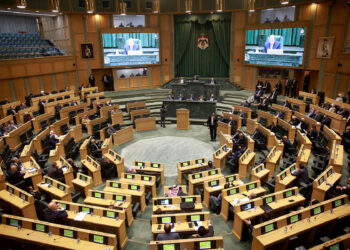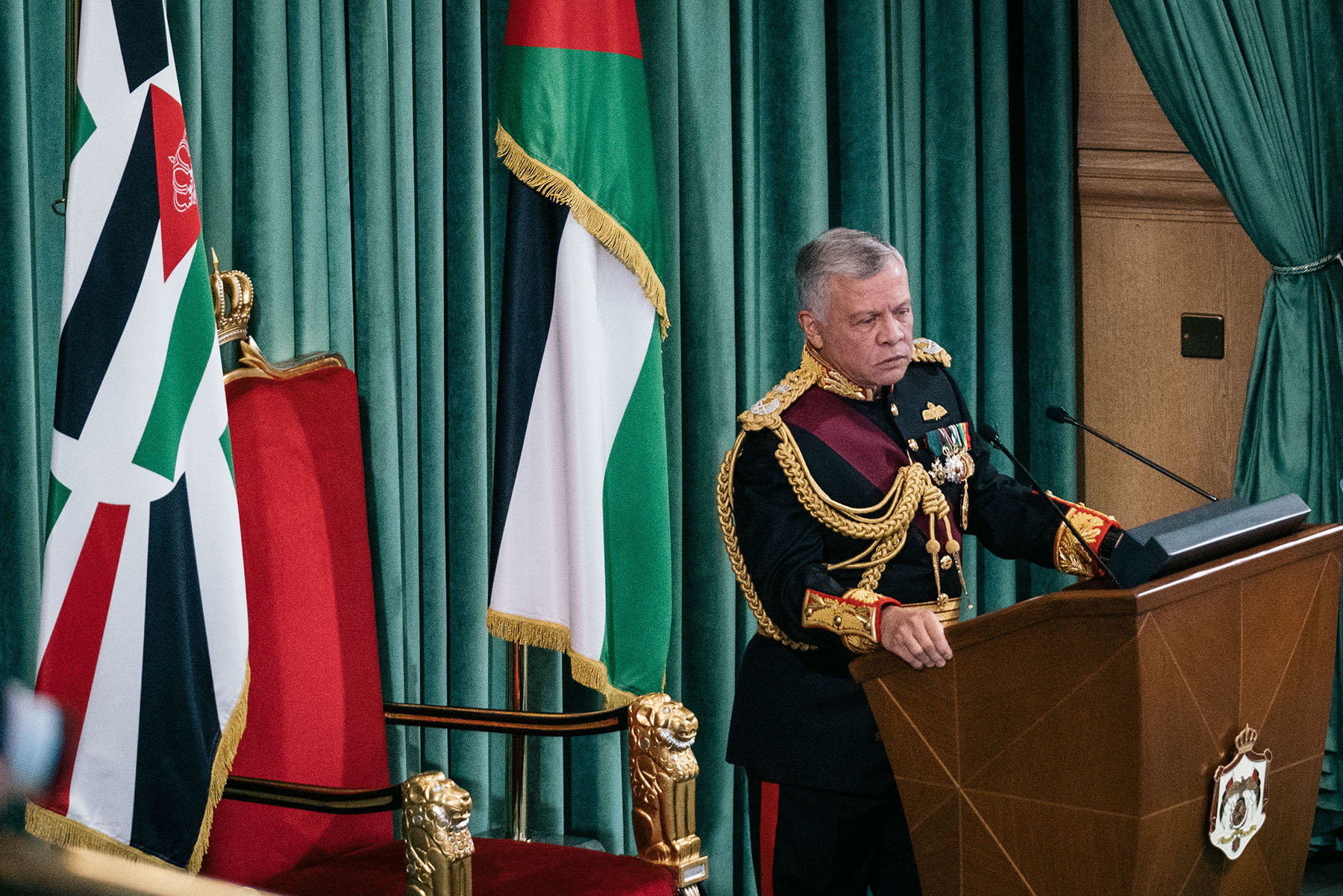*Ahmad Algohbary is a freelance Yemeni journalist who has reported on the Yemen war for international media since war broke out in 2015. His work has appeared in The Guardian and Al Jazeera English, among other outlets. As Co-Director of Photography, Aloghbary filmed the 2018 documentary “Yemen Skies of Terror,” which was nominated for Emmy and Sheffield Awards, and won an online journalism award. Algohbary has also launched a public funding campaign via his Twitter account to provide support for child victims of the war. He tweets at @AhmadAlgohbary.
Yemen is on the brink of an environmental catastrophe. At practically any time, the FSO Safer, a decrepit, rusting supertanker moored off the Yemeni coast throughout the now seven-year war between the Houthis and the Saudi-led coalition backing Yemen's U.N-recognized government, could leak or explode, its estimated 1.14 million barrels of light crude oil flooding into the Red Sea. The ship, a floating oil storage facility, has essentially been stranded about five nautical miles offshore, and 32 nautical miles from the key port of Hodeidah, since 2015 without any maintenance.
The former head of the state-run firm that owns the ship—the Safer Exploration & Production Operations Company, or SEPOC, which before the war would perform millions of dollars' worth of annual maintenance on it—described the corroding supertanker as a "bomb," in an extensive report by The New Yorker. Seawater began leaking into the Safer's engine room in May 2020; it was contained by a severely understaffed emergency maintenance crew, including a team of divers working frantically over five days. But as Mark Lowcock, the under-secretary general and emergency relief coordinator at the United Nations, told the U.N. Security Council, "the fix they applied is only temporary, and it is impossible to say how long it might hold." That was two years ago.
Plans to offload the oil and prevent an oil spill in the Red Sea that one analyst warned would be "the biggest man-made oil-related disaster ever recorded" have been held up by the Houthis. Since they control the port of Hodeidah and its surrounding region, they control access to the deteriorating tanker. The Houthis have played a dangerous game, using the Safer as a bargaining chip in Yemen, even though it isn't clear what they are really bargaining for. Despite repeated attempts by the United Nations to first inspect the ship and then launch a salvage mission, the Houthis have continually gotten in the way.
The Houthis have played a dangerous game, using the Safer as a bargaining chip in Yemen, even though it isn't clear what they are really bargaining for.
- Ahmad Algohbary
The U.N. recently turned to crowdfunding to secure the necessary funds for a salvage mission, but it still needs an additional $20 million. "The lack of urgency from governments has brought Yemen perilously close to a new humanitarian and environmental disaster," Michael Page, the deputy director for the Middle East and North Africa at Human Rights Watch, said in a statement this week. "It's incomprehensible that the U.N. is now reduced to crowdfunding $20 million when the potential damages could be a thousand times greater."
Every day, there is a greater risk that the tanker will burst or explode, doing irreversible environmental damage to Yemen and the Red Sea, while disrupting vital shipping lanes in the nearby Bab al-Mandeb Strait, the pinch point between Yemen and Djibouti, in the Horn of Africa, that is so vital to global trade. The impacts would be felt far beyond Yemen given global supply chains. In Yemen itself, an oil spill could force Hodeidah's port, which has been blockaded by the Saudi-led coalition throughout the war, to shut down, closing the main entry point for essential imports of food, medicine and other basic goods for the majority of Yemenis. In 2018, humanitarian groups warned that hundreds of thousands of malnourished children in Yemen could die if Hodeidah's port closed entirely.
The threat posed by the Safer has been building for years in plain sight. Lowcock has previously blamed the Houthis for impeding the U.N., saying that they have been "unwilling to accept a mission in practice. Instead, they imposed preconditions and linked the Safer with other issues." Several times in recent years, the Houthis have informed the U.N. of their apparent approval for a mission to inspect the ship and remove its oil, only to change their minds at the last minute, each time raising a new demand, including that the Safer be replaced with another oil tanker. "The main sticking point seems to be what, exactly, the U.N. mission will do and—more specifically—why the United Nations cannot agree more in terms of repairs," Lowcock told the Security Council last year.
Finally, this past March, the U.N. signed a memorandum of understanding with the Houthis, stating that all signatories "acknowledge that the authorities in Sana'a"—that is, the Houthis—"bear no financial obligations," meaning the U.N. would fund the salvage mission. It also stated that "the authorities in Sana'a are committed to providing all facilities for the success of the project." According to the memo, the U.N. "committed" to provide a replacement to the Safer within 18 months, with the possibility of a temporary tanker to offload the Safer's oil.
Plans to offload the oil and prevent an oil spill in the Red Sea that one analyst warned would be "the biggest man-made oil-related disaster ever recorded" have been held up by the Houthis.
- Ahmad Algohbary
The U.N. still urgently needed $80 million for the first part of the mission, to remove the oil (plus an estimated $64 million afterwards to put a new tanker in place, though that could be partially defrayed by scrapping the Safer). But the Houthis criticized the U.N.'s public fundraising efforts, claiming they didn't "comply with" the March memorandum, even though it said that the U.N. would "make all efforts to mobilize the necessary funds." Houthi officials even issued a statement in early May blaming the U.N. for "failing to comply with" the agreement, undermining the U.N. crowdfunding effort and making its pitch to already reluctant donors more difficult.
When contacted, Houthi officials didn't respond to questions about why they criticized the fundraising appeals. Russell Geekie, a communications adviser to the U.N. resident and humanitarian coordinator for Yemen, stopped short of blaming the Houthis. "From our perspective today, what is important is that we have a U.N.-coordinated plan that all of the parties to the conflict support, including the Sana'a authorities," Geekie said in an email interview.
Geekie added that there were no "preconditions imposed on anyone" by the Houthis. "For the Sana'a authorities, it was important to maintain [oil] capacity equivalent to the FSO Safer, which was built into the two-track operational plan that all sides support." Geekie said that both the Houthis and their rival in southern Yemen, the country's U.N.-recognized government, were provided with the U.N.'s operational plan before its pledging event. "Since then, the Sana'a authorities have continually expressed their support for the U.N.-coordinated plan in meetings with us."
But as Gerry Simpson, associate crisis and conflict director at Human Rights Watch, previously told The Washington Post, "In the case of the Houthis, they are putting 30 million people's lives and livelihoods and welfare at risk for strategic, military and political reasons." While the tanker has been compared to Beirut's deadly port explosion in 2020, which was caused by stockpiles of highly explosive ammonium nitrate kept in neglected warehouses for years, the situation in Yemen is an outcome of its war, as the Houthis see the Safer as leverage that they can use in the war's other negotiations. "In the case of Beirut authorities, it looks like sheer negligence," Simpson added. "The Houthis have no interest whatsoever in throwing away strategic advantages in their war against the Saudis. The tanker is a negotiating tool to reach their strategic outcome."
Even if the Houthis finally facilitate the U.N. mission, funding remains a serious obstacle. "There are risks if we wait too long for funding," Geekie said. "The greatest, of course, would be that the ship breaks apart, which becomes more likely with each passing day, and especially in October, November and December, when the currents are volatile and winds are very strong."
The stakes are only getting higher. The Houthis, more than any other party in or involved in Yemen, should be the most concerned with this impending disaster. But they have acted recklessly, first making unreasonable demands and then undermining the U.N.'s efforts to avert an oil spill that would ravage Yemen. Yemenis won't forgive the Houthis for this failure.































![Security forces loyal to the interim Syrian government stand guard at a checkpoint previously held by supporters of deposed president Bashar al-Assad, in the town of Hmeimim, in the coastal province of Latakia, on March 11, 2025. Syria's new authorities announced on March 10, the end of an operation against loyalists of deposed president Bashar al-Assad, after a war monitor reported more than 1,000 civilians killed in the worst violence since his overthrow. The Syrian Observatory for Human Rights said the overwhelming majority of the 1,068 civilians killed since March 6, were members of the Alawite minority who were executed by the security forces or allied groups. (Photo by OMAR HAJ KADOUR / AFP) / “The erroneous mention[s] appearing in the metadata of this photo by OMAR HAJ KADOUR has been modified in AFP systems in the following manner: [Hmeimim] instead of [Ayn Shiqaq]. Please immediately remove the erroneous mention[s] from all your online services and delete it (them) from your servers. If you have been authorized by AFP to distribute it (them) to third parties, please ensure that the same actions are carried out by them. Failure to promptly comply with these instructions will entail liability on your part for any continued or post notification usage. Therefore we thank you very much for all your attention and prompt action. We are sorry for the inconvenience this notification may cause and remain at your disposal for any further information you may require.”](https://dawnmena.org/wp-content/uploads/2025/04/syria-22039885951-360x180.jpg)






